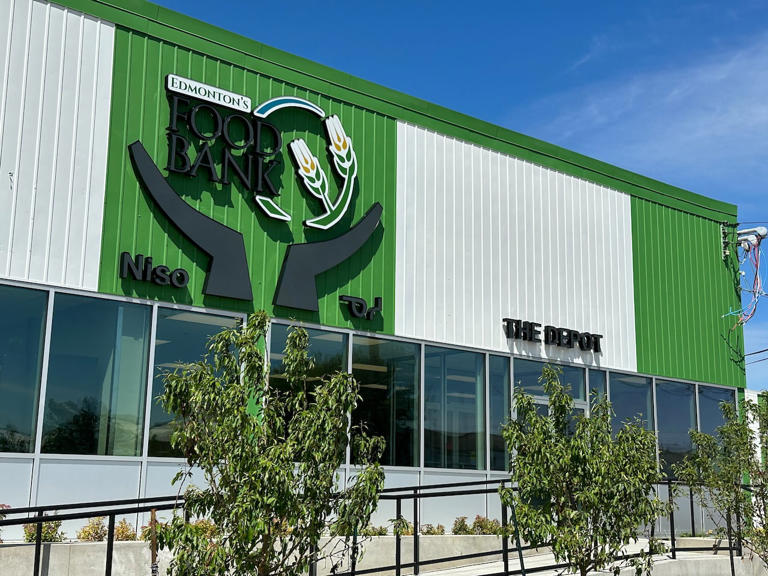Food insecurity rising sharply in Edmonton, report finds
RENT CONTROL INCREASES FOOD SECURITY
Story by Dennis Kovtun • CBC

Due to the increased demand, Edmonton's Food Bank had to reduce the size of its hampers, the executive director says,© Aaron Sousa/ CBC
The number of people in Edmonton having difficulty keeping food on the table has been rising sharply.
Over the last decade, food insecurity rose almost two-fold in Alberta, a new Vital Signs report has found.
In 2011, just over 12 per cent of Albertans were food-insecure the report says. In 2022, this number rose to more than 20 per cent.
Health Canada defines food insecurity as "inability to acquire or consume an adequate diet quality or sufficient quantity of food in socially acceptable ways, or the uncertainty that one will be able to do so."
The Vital Signs report is the annual initiative by Edmonton Community Foundation and Edmonton Social Planning Council focusing on issues that are timely and important for the city. This year's report focuses on food security and life in Edmonton.
As costs of food and housing increase, and other expenses continue to rise "more people are struggling with regards to food insecurity in both Edmonton and in Alberta," said Susan Morrissey the executive director with the Edmonton Social Planning Council.
The report notes that healthy food for a year that costs $10,920 for family of four in Edmonton in 2013, costs $15,306 in 2022.
Morrissey said it's not only vulnerable people experiencing food insecurity
"It's everyday individuals who are actually working jobs, but maybe not making enough money to be able to afford all the costs."
Some demographics more affected
Certain demographic groups are more likely to experience food insecurity, said Nneka Otogbolu, director of strategic initiatives and equity advancement at the Edmonton Community Foundation.
The report notes 23 per cent of BIPOC Edmontonians report difficulty accessing foods from their culture.
Children are especially vulnerable. More than 20 per cent of Albertan children lived in food-insecure households, compared to just under 18 per cent in 2011, the report states.
Children rely on their parents' income for food, Morrissey said and incomes have not kept up with food prices.
In low-income families, the report states, healthy food takes up 41 per cent of a monthly budget, and rent takes 54 per cent, with just five per cent left over for other expenses.
"A family would have to pick and choose," Otogbolu said. "Do we buy an apple — or do we pay for lights? Do we buy a bunch of bananas — or do we pay for water?"
When families have to make tough choices, she said, food insecurity numbers begin to rise.
Food banks feeling the strain
It's not just low-income households and vulnerable demographics that have to contend with diminished access to adequate food.
One of the highest user groups of food banks, Morrissey said are people who have some post-secondary education.
Education and skills are not a guarantee of food security, said Marjorie Bencz, the executive director at Edmonton's Food Bank.
Bencz said the Edmonton Food Bank interviewed 500 food bank hamper recipients over the course of the summer, and found that 75 per cent of them were paying full market rents.
"They're not getting any kind of break, or rent subsidy," Bencz said, and these people have to spend out of their limited funds keeping a roof over their head.
"Whatever they have left is to try to make it through the month, and they often aren't able to do so," Bencz said.
The increased demand, Bencz said, was creating a situation where the food bank had to modify the size and content of their hampers.
"It wasn't sustainable," she said.
Bencz said there are ways to alleviate food insecurity — though reasons that push someone to use a food bank "might look different in different households."
Ensuring that income security programs are sustainable and that fewer people fall through the gaps in the community is one way, she said. Taking action on affordable housing is another.
"There's different levels of government that can do different things to help the situation," Bencz said, "and it's a matter of us keeping those conversations going."
No comments:
Post a Comment